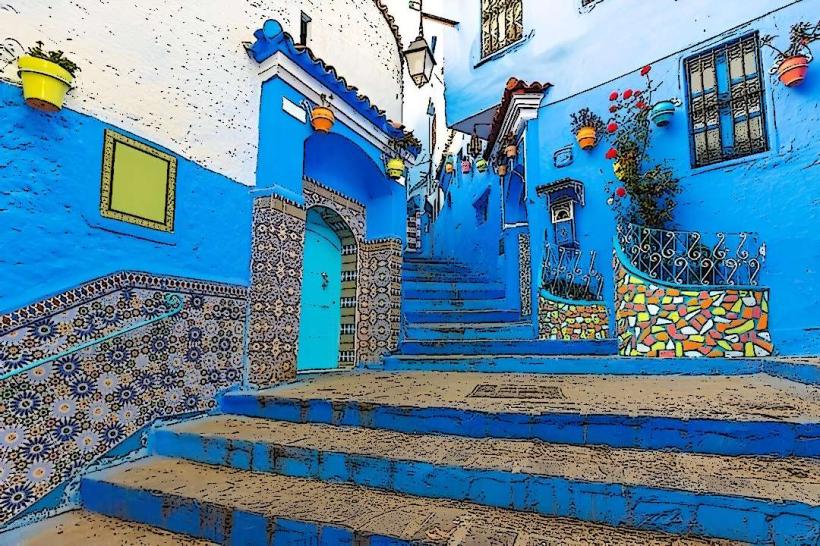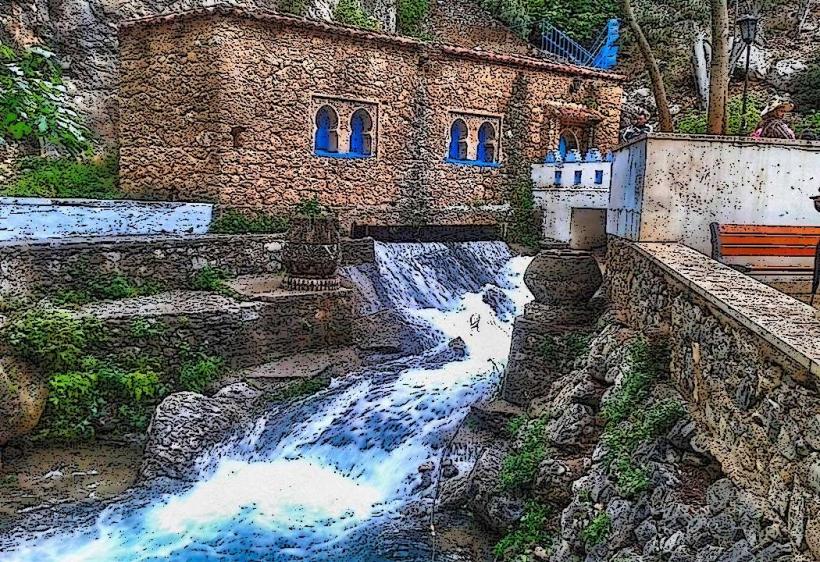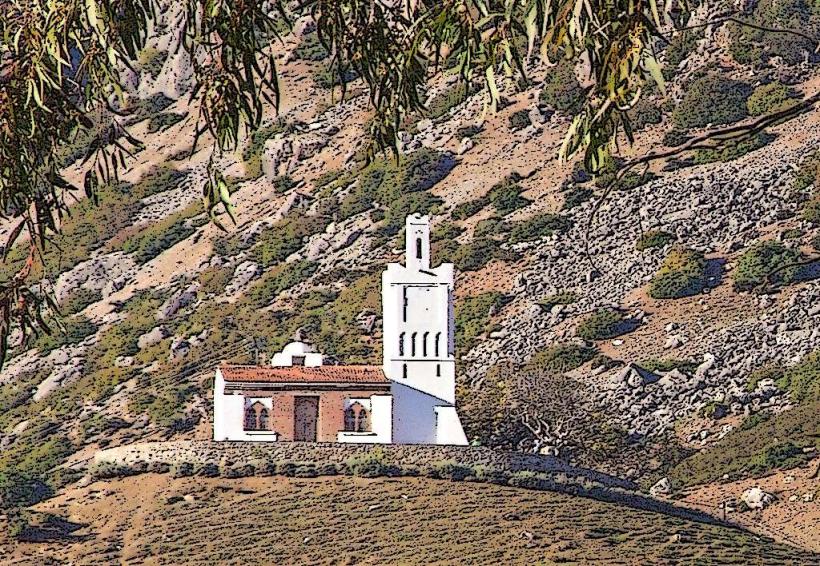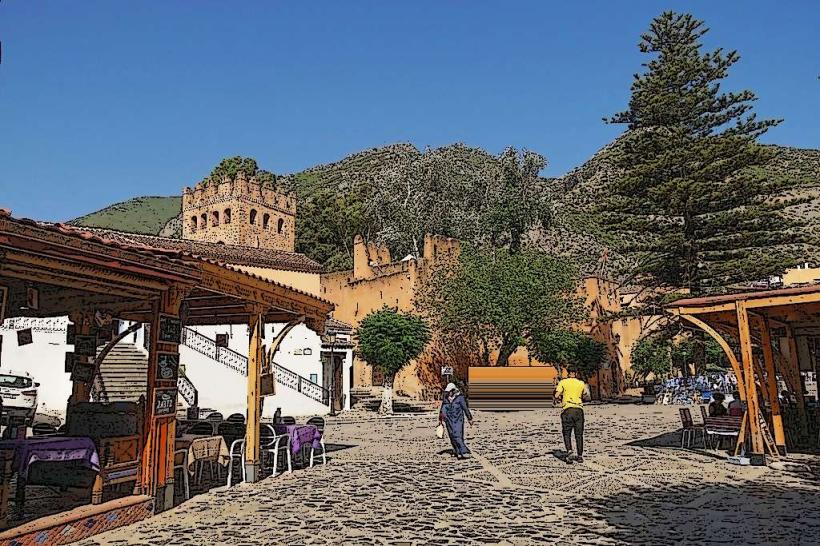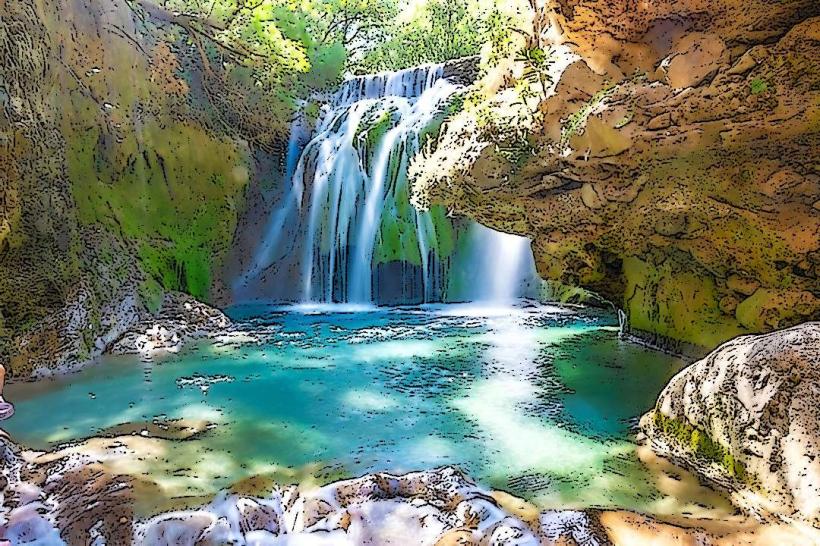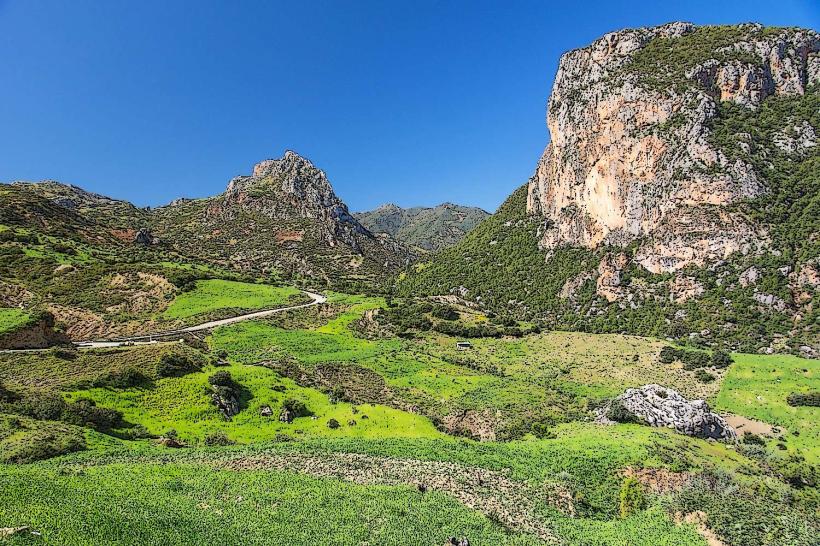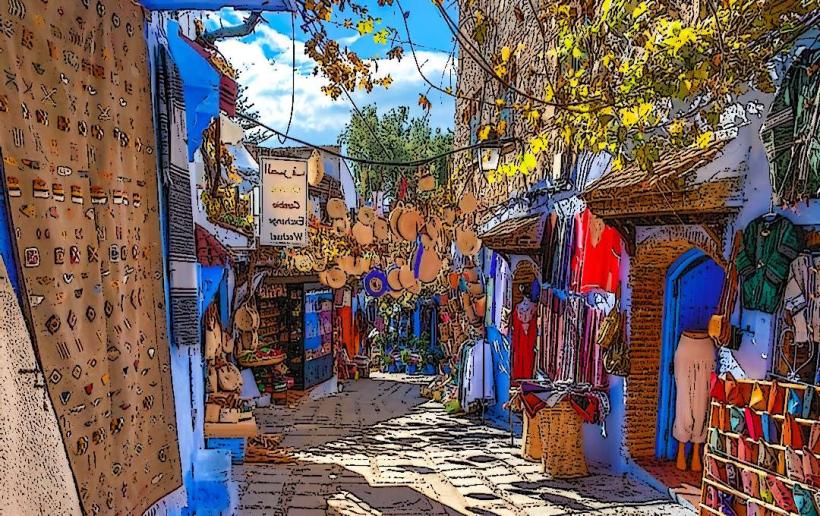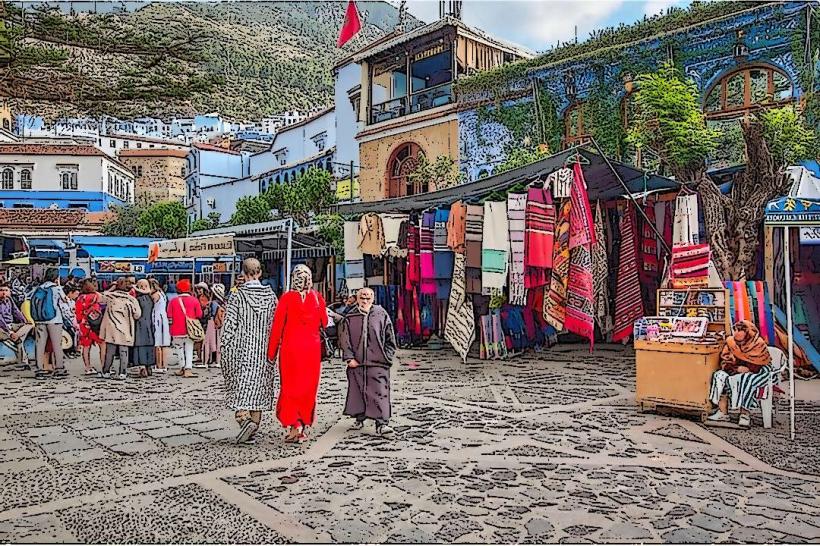Information
Landmark: Grand Mosque of ChefchaouenCity: Chefchaouen
Country: Morocco
Continent: Africa
Grand Mosque of Chefchaouen, Chefchaouen, Morocco, Africa
The Grand Mosque of Chefchaouen is a historical religious structure situated in the Medina of Chefchaouen, Morocco.
Visual Characteristics
The mosque features a distinctive octagonal minaret constructed from local stone, a departure from the typical square minarets found elsewhere in Morocco. The main prayer hall is characterized by its simple, whitewashed exterior, punctuated by arched windows. Its roof is covered with green tiles.
Location & Access Logistics
The Grand Mosque is located in the heart of Chefchaouen's medina, specifically in the Outa el Hammam Square. It is approximately 1 kilometer from the main bus station. Access is on foot via the medina's pedestrian pathways. No vehicle access is permitted directly to the mosque. Parking is available in public lots outside the medina walls, such as the parking area near Bab Souk, approximately a 10-minute walk away.
Historical & Ecological Origin
Construction of the Grand Mosque began in the 15th century, around 1471, under the order of Moulay Ali Ben Moussa Ben Rached El Alami. Its original purpose was to serve as a central place of worship and a defensive structure within the newly established town.
Key Highlights & Activities
Visitors can observe the exterior architecture, including the unique minaret. Photography of the exterior is permitted. Entry into the prayer hall is restricted to Muslims during prayer times. Non-Muslims may view the courtyard.
Infrastructure & Amenities
Restrooms are not directly available within the mosque complex. Public restrooms are located in the adjacent Outa el Hammam square. Shade is available in the courtyard area. Cell phone signal (4G/5G) is generally available in the square. Food vendors and cafes are abundant in Outa el Hammam square.
Best Time to Visit
For exterior photography, early morning or late afternoon provides optimal lighting conditions. The best months for visiting Chefchaouen, and by extension the mosque, are April, May, September, and October, offering mild temperatures. The mosque is accessible throughout daylight hours, with prayer times dictating internal access.
Facts & Legends
The octagonal shape of the minaret is said to be influenced by Andalusian architectural styles, reflecting the historical connections between Chefchaouen and Moorish Spain. It is one of the few mosques in Morocco with this specific minaret design.
Nearby Landmarks
- Kasbah Museum (0.1km West)
- Plaza Uta el-Hammam (0.0km)
- Ras El Maa Waterfall (0.8km East)
- Spanish Mosque (1.2km Northeast)
- Dar El Makhzen (0.1km West)

